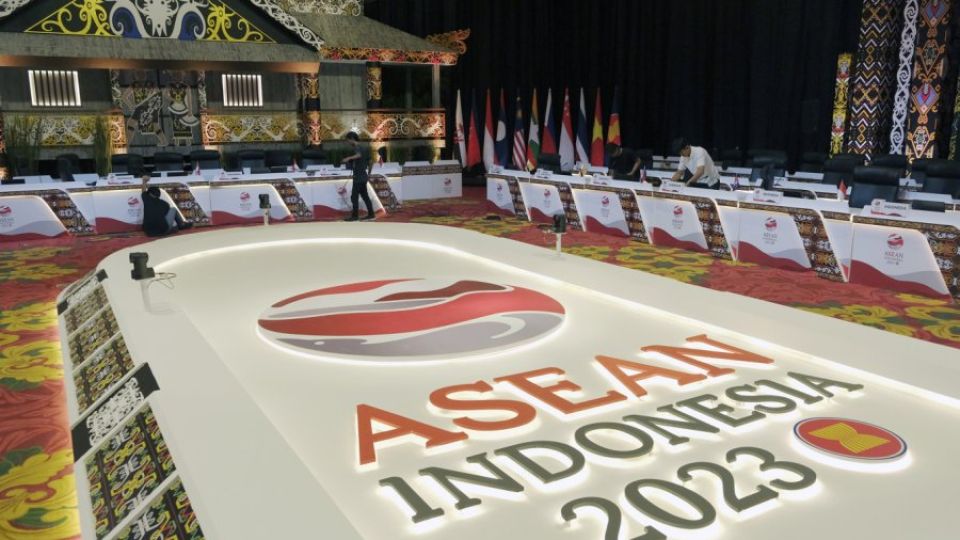April 5, 2023
JAKARTA – Amid mounting pressure on Indonesia, this year’s ASEAN chair, to deliver a breakthrough in the Myanmar crisis, analysts say the Thai general election scheduled for mid-May could have a significant impact on the bloc’s actions and Myanmar’s future.
More than two years after the Myanmar military overthrew the country’s democratic leader, Aung San Suu Kyi, ASEAN continues to fail to implement its peace initiative, the Five-Point Consensus (5PC).
Thailand is widely suspected to be a quiet supporter of the Myanmar junta, a stance that has impeded the consensus-led 10-nation bloc.
Both the outcome and the processes of the Thai election could affect the future of ASEAN’s Myanmar engagement, analysts have suggested.
“The democratic process itself will mean a lot. If it can run fairly, with the people of Thailand choosing their leader democratically, then whoever wins could destroy their credibility if they so choose to support the Myanmar junta,” Dewi Fortuna Anwar, a senior international relations analyst from the National Research and Innovation Agency (BRIN) told The Jakarta Post.
In less than six weeks, Thailand will see Prime Minister Prayut Chan-o-cha, the former general who assumed leadership in 2014 after performing a successful military coup, run for reelection.
Under Chan-o-cha’s leadership, Thailand has been adamant about continuing to engage with the Myanmar junta despite calls to refrain from any actions that could undermine ASEAN’s credibility.
This includes a meeting in Bangkok last year of Myanmar’s top diplomat and representatives from Laos, Cambodia and Vietnam, as well as engagement in January between Thailand’s top general and junta chief Min Aung Hlaing.
“The closeness of Thailand’s military with its Myanmar counterpart is long-standing and not at all a secret. The two maintain a strong diplomatic relationship,” Dewi added.
“It is not only a military closeness that Myanmar and Thailand maintain, but also strong business relations, as in the case of gemstones. This can translate to a softer attitude toward military leadership, since there are political and economic interests at play.”
Some members of ASEAN have sought to take a firm stance on the 5PC, which calls for the cessation of violence and the appointment of a special envoy to engage in dialogue with all the parties to the conflict.
However, over the past several months, the bloc has contended with suspicions that some of its members, including Thailand, are sympathetic to Myanmar’s military junta.
In late January, the ASEAN Parliamentarians for Human Rights (APHR) released a statement to “urge the Thai government to stop engaging with the Myanmar junta”, claiming that Thai military leaders were “enablers of the crimes against humanity”.
The following month, Malaysian Prime Minister Anwar Ibrahim asked Chan-o-cha to take a firmer stance against Myanmar.
“There is very little we can do except to continue this so-called constructive engagement with the Myanmar junta. But I think you are placed, prime minister, in a better position to express many of our concerns,” said Anwar at the time.
Natural allies
The Thai election will not only affect the country’s approach to Myanmar as a neighbor sharing a long border, but will also affect the junta’s behavior, said Centre for Strategic and International Studies (CSIS) international relations expert Fitriani.
“There will definitely be consequences. Myanmar’s junta have closely studied the juntas of other neighboring countries, like Thailand,” she told the Post.
Evi Fitriani, an international relations expert at the University of Indonesia (UI), added that Chan-o-cha had a strong incentive to support the Myanmar junta, as both governments had been established through military coups.
“They need to support each other to fight for ASEAN’s acceptance. Similarly, they are both condemned by the West and only have China to rely on,” she said.
A major contender in the Thai election is the Pheu Thai party’s Paetongtarn Shinawatra, daughter of former Thai Minister Thaksin Shinawatra.
The support for Pheu Thai has increased as the election has approached, making it a heated battleground between pro-democratic forces and entrenched military power.
Last year, Pheu Thai condemned Min Aung Hlaing’s execution of four Myanmar democracy activists, saying the Myanmar people had her “unwavering support for the right to rally for democracy”.
Dewi, however, noted that even if the opposition won the election, Thailand’s attitude within ASEAN would not automatically change.
The military junta in Thailand, she said, was backed by some Bangkok elites as well as some civil organizations, unlike that of Myanmar’s.
“In the case of Thaksin, for example, he was eventually eliminated. The Thai junta is receiving support from the elites, and the Thai society is divided. This is a challenging aspect and frankly embarrassing for Thailand’s foreign reputation,” she said.
Fitri noted that come what may, Jakarta still had the strongest say in ASEAN’s diplomatic processes.
“Indonesia, in my opinion, could have more influence [than the Thai election results] given its position as chair,” she said.


